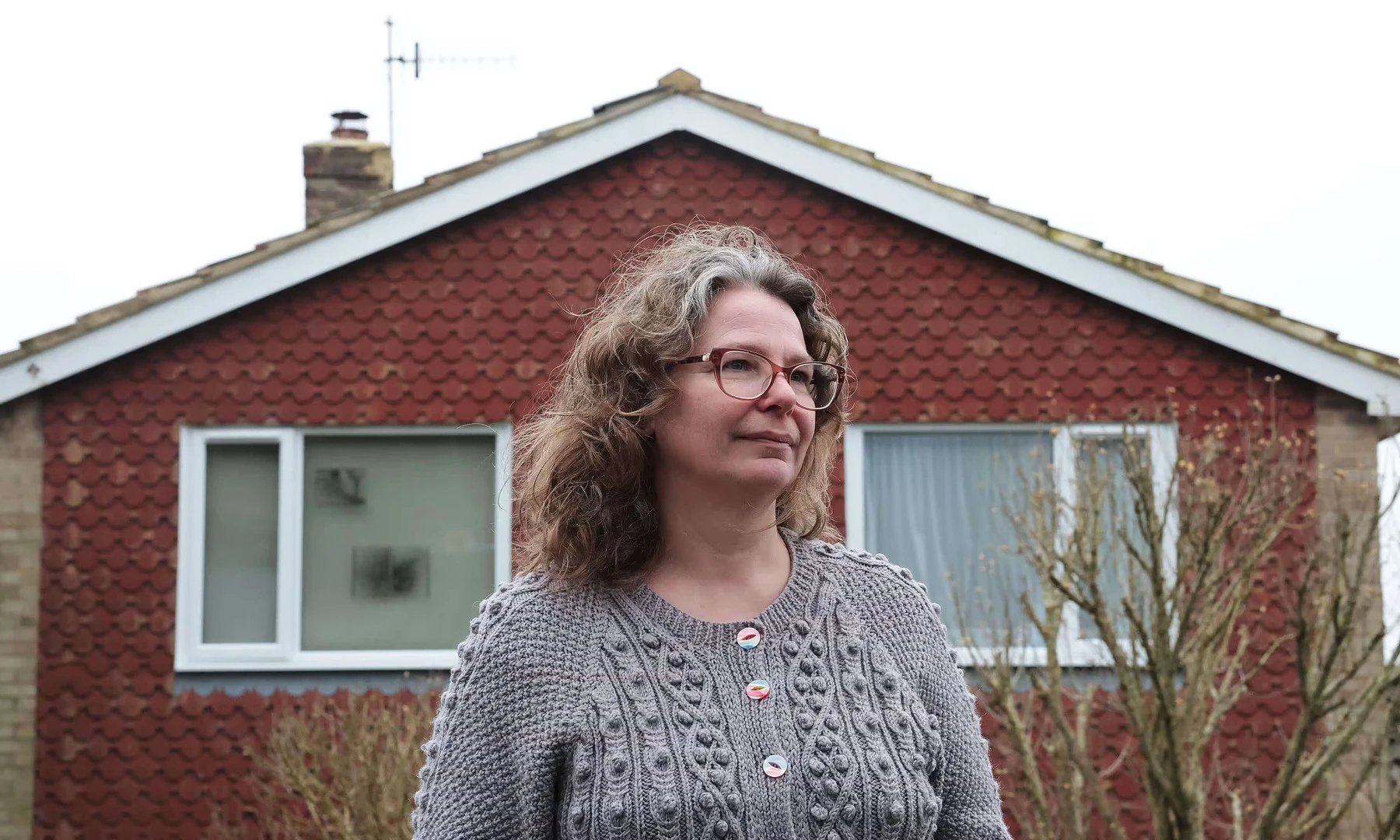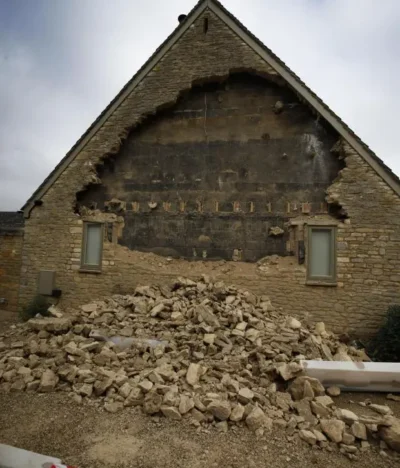Sat 9 Mar 2024 08.00 GMT
Lack of UK regulations means anyone can set up as a builder – and cowboy traders are thought to cost homeowners £3.5bn a year
The nightmare began with a leaking roof. Andrea Giles* duly sought out a specialist company to repair it. But in the space of a month, Giles, a full-time carer for her disabled husband and two special needs children, had lost almost £13,000 and part of the roof of her home after falling victim to two sets of cowboy builders.
Her plight highlights the lack of protection for householders who are conned or persuaded into paying rogue builders for botched or unnecessary repairs.
Nationally, unscrupulous traders cost homeowners about £3.5bn a year, according to trading standards authorities, and the problem is escalating as demand for home improvements, loft conversions and extensions increases.
In Giles’s home city, trading standards received more than 200 complaints about home improvements in the space of a year, with some householders reporting losses of up to £250,000.
In an unregulated sector, anyone can set up as a builder without scrutiny, and most rogue traders get off scot-free, typically vanishing without a paper trail when rumbled and leaving householders to pick up the bill.
Giles ended up losing out twice over, after seeking a reputable company to fix her leak.
“I initially chose a company which had a very thin online presence, but the job was small and their quote was the most thorough of the three I obtained,” she says. “More fool me! The workmen put up a wobbly scaffolding tower and proceeded to tear chunks off my roof. They then told me the roof was thoroughly rotten, and said they would help me out by replacing it for £10,000.”
Giles was asked to transfer £5,000 there and then but declined. The workmen departed, leaving a large hole in her roof.
Fortunately, she had not yet paid their initial quote and set about finding another firm that would make good the damage.
“We are always being told to ask for recommendations, but none of my family and friends had ever needed a roofer,” she says.
“I was advised to use Checkatrade, so I would know I was dealing with a legitimate and reliable roofer. I ended up choosing a sole trader who had great reviews on Checkatrade. I completely fell for his patter that he felt sorry for me having been scammed, so he was keeping the price as low as he could and offering a 15-year guarantee.”

Giles paid £12,900 when the work on the roof was completed. Photograph: roboriginal – Fotolia
Giles paid £12,900 when the job was completed. Too late, she discovered that it had been botched, and the leaks got worse. The trader returned over the next few months to make ineffectual repairs, but has refused to accept liability or properly fix the problem.
Her formal complaint was returned as undeliverable as he had provided an incomplete address. Without a valid address, she could not start court action to recover her money.
“From 30 minutes of Googling, I discovered other roofing companies registered at the incomplete address, both active and dissolved, with company directors who share the same surname as my roofer,” she says.
Since he had, in her opinion, used Checkatrade to give his operation “a veneer of respectability,” Giles says she asked the site if it could consider helping with a discretionary payment, but it told her it was not liable.
“We live on my husband’s disability benefits and my part-time job and can’t afford to pay a third builder. I feel so foolish,” she says.
Checkatrade promises “guaranteed” traders, “rigorous checks” and “recommendations you can rely on”. Its 12-month guarantee pays up to £1,000 if workmanship is found to be substandard, but ultimately it and other similar platforms offering vetted contractors are not liable if a trader fails to deliver. The guarantee doesn’t cover cases where a trader absconds with the deposit or ceases trading.
Giles was told she was eligible for the £1,000. A Checkatrade surveyor then estimated that it would cost £10,000 plus VAT to replace the wrecked roof. Checkatrade initially told her that since the trader was no longer a member, it could not investigate further. It then said that this was an error, and that he was still a member and her complaint was being investigated; it later cancelled the trader’s membership.
However, after Guardian Money got in touch, Checkatrade persuaded the trader to hand back £6,000 of Giles’s £12,900 payment and said it would support her in reclaiming the full repair costs.
It says that when it ends a trader’s membership, it engages with them to find a resolution, and says it has supported Giles since her complaint.
“Her experience with this tradesperson does not reflect the high standard we expect of members,” says a spokesperson. “On the rare occasion that things do go wrong, we leverage our team of customer dispute specialists to support homeowners, often helping them to secure a better outcome than they might outside Checkatrade. This level of support, alongside our 12 checks and ongoing review monitoring, is testament to why Checkatrade remains the best and safest place to find a trade.”

Unlike gas and electricity technicians, anyone can trade as a builder with or without qualifications, and the construction industry is lobbying for an official licensing scheme to weed out charlatans.
According to the Federation of Master Builders, the problem “shames” the building trade, and it argues that platforms such as Checkatrade, which promise basic vetting, have made little difference, because membership is voluntary.
“At the core of the problem is a lack of industry standards,” says Brian Berry, the FMB chief executive. “This leaves consumers without a clear route to challenge cowboy builders for their bad work, and the construction industry reliant on the shaky foundations of unregulated builders.”






